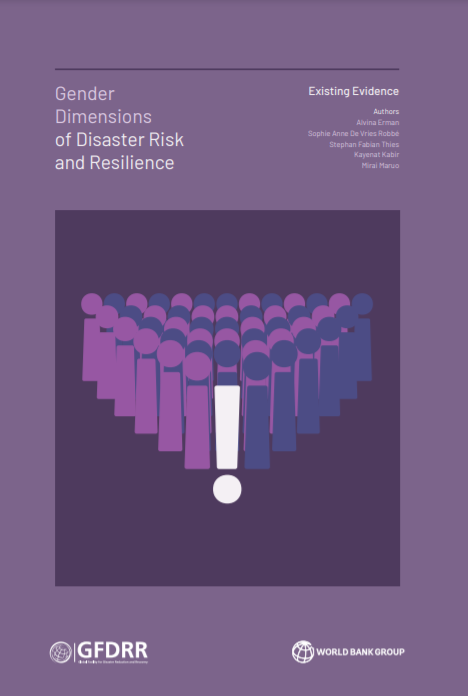Men and women, boys and girls have different experiences of disasters. Gender dynamics impact both the way they are affected by disasters and their capacity to withstand and recover from them. Gender inequalities can result in gender-differentiated disaster impact, and differentiated impacts can influence gender dynamics, which in turn affect future resilience to shocks. Disaster risk management policies are designed to maximize results, taking local conditions - including gender dynamics - as fixed. When women and men are affected differently by disasters, practitioners and policy makers have a responsibility to use the tools available for mitigating disaster impacts to close gender gaps in outcome. An improved understanding of the gender dynamics of disaster risk and resilience also allows for better policy and program design, which benefits all stakeholders.
Gender Dimensions of Disaster Risk and Resilience: Existing Evidence
February 26, 2021

